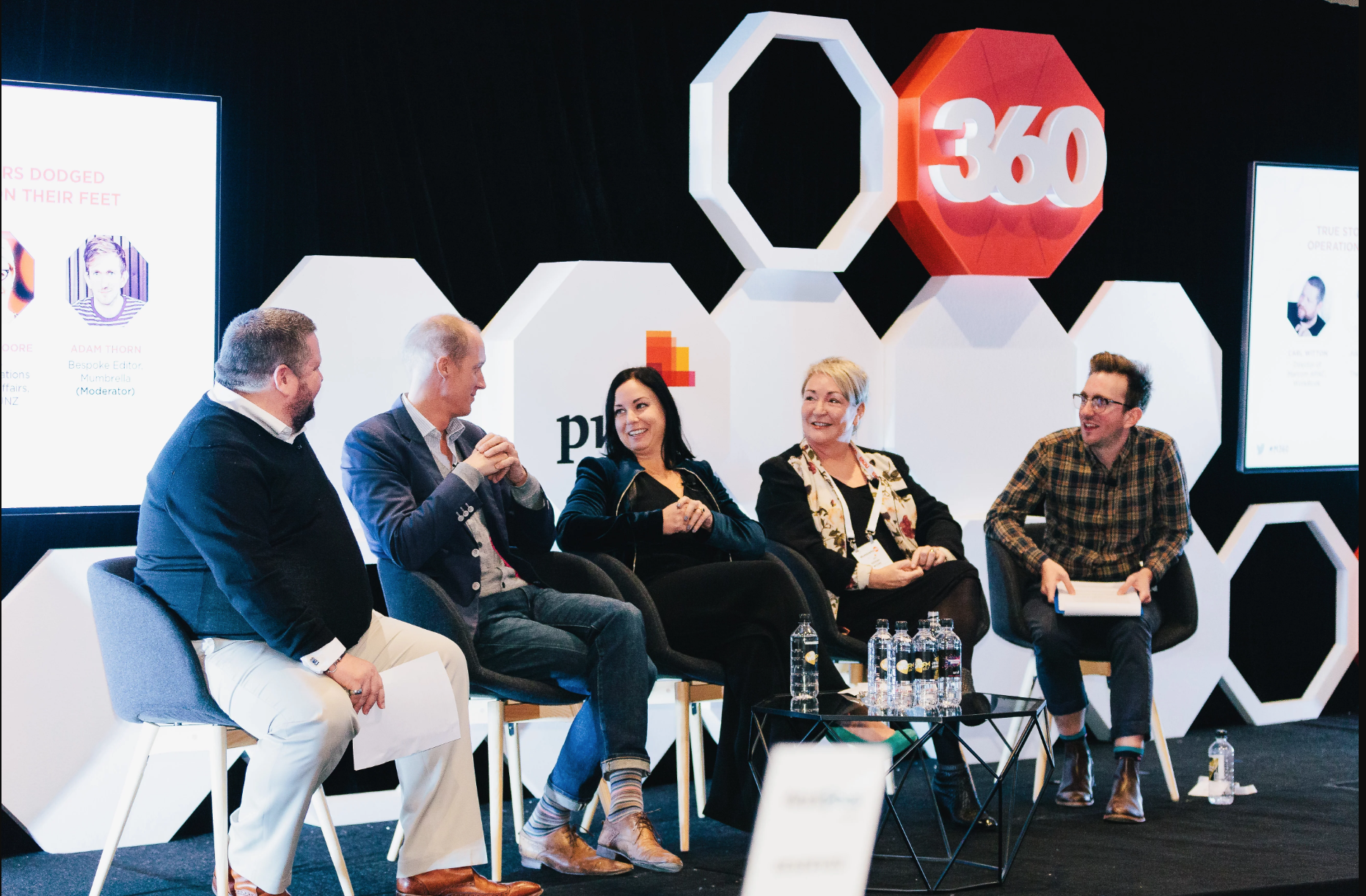Mumbrella360: How top agency bosses have adapted
The ad game has changed beyond all recognition in the last ten years. Agencies, for instance, used to be so simple: the creative team would take care of the imaginative stuff while the suits ensured the campaign came together. But in 2018, increasing channels, integration and expectation of consumers mean everyone – from the planners to the account team and even the strategists – needs to employ a bit of initiative to get a project across the line.
From left: WorkBook’s Carl Witton; The Hallway’s Jules Hall; Spark 44’s Jasmin Bedir; WPP AUNZ’s Kieran Moore and Mumbrella’s Adam Thorn
Jules Hall, founder of creative agency The Hallway, pinpoints customer information as the most significant change the industry has faced. “Creatives have to understand data, and to see the opportunity it can bring to the work they’re generating,” he said. “Strategists must think about customer information as much as they do about the big brand idea; while everyone needs to consider customer experience, and think about it creatively.”
Hall was speaking at Mumbrella360 in a panel discussing the changing nature of agencies alongside big-hitters including Kieran Moore, the CEO of public relations and public affairs at WPP AUNZ; Jasmin Bedir, the MD of Spark44; and Carl Witton, the director APAC agency solutions for WorkBook.
WorkBook was sponsoring the session because the changing nature of agencies is essentially what they deal with every day – its software helps businesses stay organised in an industry that seems anything but. It also gives Carl a unique perspective on the challenges execs such as Hall are up against. “We’ve worked with many agencies to help them integrate projects, people, and financial data into a robust system that paints a detailed picture of the business,” Witton said. “It creates a more agile network to meet client needs.”
“Just look at Ogilvy,” he continued. “With The Next Chapter initiative, it’s making fundamental changes to its operation right now.” Recently, he pointed out, the ad behemoth announced to the world it was making the most significant overhaul of how it operates since its foundation more than 70 years ago. Now it operates around five pillars, which prioritises digital transformation and integration.
“Things will only get better for agencies,” he added, “once the organisation within the business gets better. The internal operations team has to get the delivery right, so today their skills are very much in demand.”
“Back in the day,” chimed in Spark44’s Bedir, “the marketing team would brief a campaign into an agency. However, now you might have ten different agencies because you’ve got to consider CRM, digital platforms and influencers, too.”
“There are challenges and opportunities to all this,” added WPP’s Moore. “But what’s especially interesting is PR people have now got a seat at the table, whereas before agency staff took those seats.”
But surely that creates problems? It’s all very well talking about integration but isn’t there also the issue of big egos, and bigger toes trampled on?
“Clients just don’t care what discipline you’re from,” Moore said. “Clients are very disciplined in insisting the best idea wins and demanding there’s no argy-bargy between the agencies.” In fact, she added, some of the most progressive and successful agencies she’s worked with are the ones that realise it’s less about the elbows up, and more about getting on and working with others to get the right results. “Clients can smell when you’re pushing one particular discipline even when it’s not right. They call bullshit on it. If you’ve been around long enough, you learn that your survival is based on the fact you’ve always got to do the right thing by your client, regardless of whether you get the lion’s share of the budget or not.”
“Collaboration is a reality,” agreed Jules. “You’ve got collaboration internally, you’ve got collaboration with another agency, and you’ve always got collaboration with your client partners.” He cites recent research by Google, which found that the most important factor in a successful team was not necessarily the people on it, but how comfortable they feel when they work together – something they term ‘psychological safety’. Today, being an adaptable team player is necessary to get on.
Jules also talked about employing what he calls T–shaped people. “They’re staff who have a depth of expertise in one discipline,” he explained, “but understand other areas of the business, too.” If you’re a purely independent thinker, he continued, you can’t appreciate what others are talking about. “In this increasingly complex world, we find that very important.”
“I like to think of it in terms of four stages,” he added. “Forming, storming, norming and performing.” Developed by Bruce Tuckman, the theory goes that group ideas are first developed independently, before people inevitably clash and then resolve disputes and come together. “It’s how you navigate the arguments before laying the groundwork for the solution.”
Without question, from the wide-ranging discussion with these agency gurus, using data for clients and internal operations, integrating channels and team to meet client needs, as well as collaboration across the agency are a few takeaways agencies of all sizes can use to adapt and survive in our ever-changing industry.

